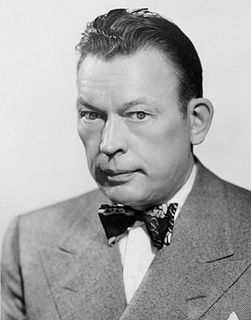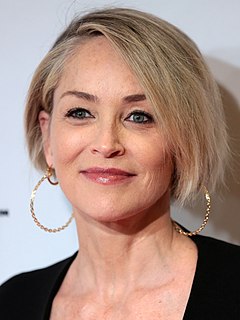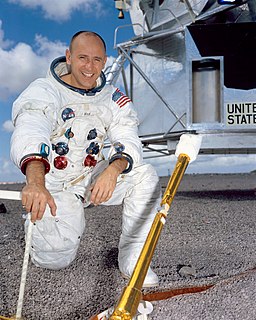A Quote by Jane Jacobs
My husband was a hospital architect and he was working on some hospitals in Alberta, and I told him to try to find out what they thought about separatism. He would come back on weekends. He said "well, I think I found out how they feel about separatism. I brought it up at lunch in the cafeteria, and everybody at the table was silent and then somebody said 'Let's change the subject'."
Related Quotes
I was just working in the shop and all of a sudden something just triggered in me, and I started shaking. And then I walked back into the house and my wife asked, 'What's the matter?' And I said, 'I don't feel good.' And tears, uncontrollable tears, was coming out of my eyes and she says, 'What's the matter?' And I told her. I said, 'I just thought about that execution that I did two days ago, and everybody else's that I was involved in.' And what it was, something triggered within, and it just, everybody - all of these executions all sprung forward.
I was over at Alison's [McGhee], I think we were playing Scrabble. I remember we were both complaining - yeah, we sound like whiners - about how hard writing is, and how we didn't have a story to work on. Alison said, 'Why don't we work on writing something together,' and I said, 'Eh, I don't know if I could work that way.' She said, 'Well, just show up here and we'll see,' and I said, 'Well, what would it be about?' She said, 'Duh, it'd be about a tall girl and a short girl.' So I agreed to come and try it for a day.
But what would have been the good?" Aslan said nothing. "You mean," said Lucy rather faintly, "that it would have turned out all right – somehow? But how? Please, Aslan! Am I not to know?" "To know what would have happened, child?" said Aslan. "No. Nobody is ever told that." "Oh dear," said Lucy. "But anyone can find out what will happen," said Aslan. "If you go back to the others now, and wake them up; and tell them you have seen me again; and that you must all get up at once and follow me – what will happen? There is only one way of finding out.
"So you're always honest," I said. "Aren't you?" "No," I told him. "I'm not." "Well, that's good to know, I guess." "I'm not saying I'm a liar," I told him. He raised his eyebrows. "That's not how I meant it, anyways." "How'd you mean it, then?" "I just...I don't always say what I feel." "Why not?" "Because the truth sometimes hurts," I said. "Yeah," he said. "So do lies, though."
If a person was accused of being a racist when he was young - he said some racially insensitive thing or someone had him on tape calling someone the n-word or whatever - and then you fast forward and he feels, Oh, back then I didn't say this or that. He's not thinking about the person that he hurt when he said what he said, or however it came out, or the effects that it could have had. He's not thinking about it. He's thinking about his own self and how he feels.
We drank quite a lot and Tony Harrington said, "We're thinking of starting a record label at The Wire; how about you do a solo record?" I said, "Well, how am I going to do that?" I thought about it, and I'd been working on a lot of music in the years before, and I was working as a journalist, full time, really, up until that point; in whatever little spare time I had, I was working on music. So I said yes.
"I was just like a pathological liar when I was a kid. I think I just wanted to one-up somebody. Somebody would be like, 'Oh, God, my legs hurt.' I'd be like, 'Your legs hurt? I'm getting mine amputated next week.' And that's actually how my mother found out. She came to school and somebody was like, 'God, that's such a shame about Jennifer's legs.' She made me purge. I had to spill out all of my lies. I was like, 'I said that Dad drove a barge, and we were millionaires, and you were pregnant, I had to get my legs amputated, and I spayed cats and dogs on the weekends.' Now I can't lie.
Before I ran for District Attorney, two Republicans invited my husband and me to lunch. And I knew a party-switch was exactly what they wanted. So, I told Chuck, we'll be polite, enjoy a free lunch and then say goodbye. But we talked about issues - they never used the words Republican, or Democrat, conservative or liberal. We talked about many issues, like welfare - is it a way of life, or a hand-up? Talked about the size of government - how much should it tax families and small businesses? And when we left that lunch, we got in the car and I looked over at Chuck and said, "I'll be damned, we're Republicans."
No one guided me through it, but here is how it happened: I was in New York doing a play, and an agent got in touch with me and said he wanted to take me out for lunch. In the theatre, they never want to take you out for lunch, so I thought, 'Yes!' I went, I ordered steak, and he told me he thought I should write for TV.
I talked to my mother about it a lot. I asked her what it was like to grow up in New York and Harlem in the 1920s and 1930s, and I asked her about a woman leaving her husband. I asked her about how she would feel about that woman, and my mother grew up in the Church Of God In Christ, and she told me that the woman might be isolated because the other women thought she might go and come after their husbands. That's how they thought then.





































